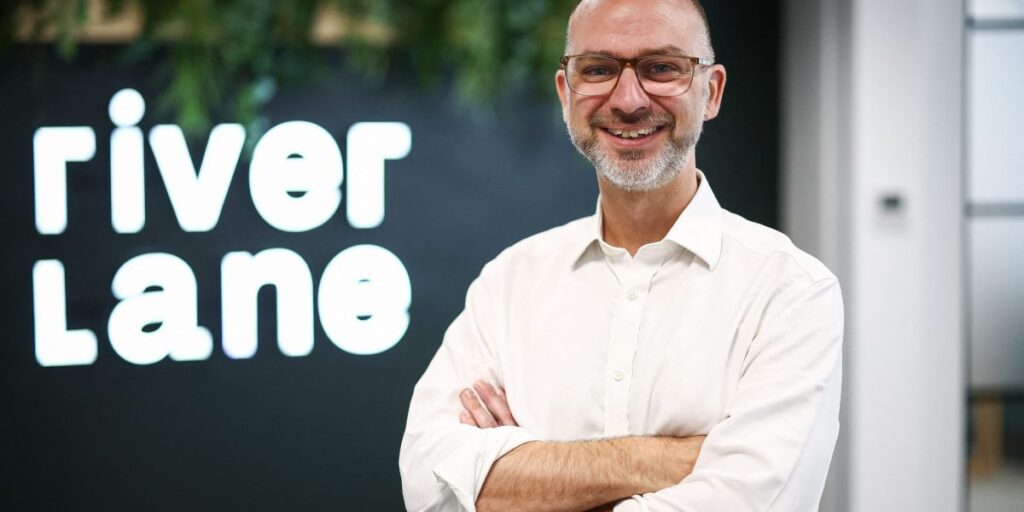
With quantum computing poised to deliver society-changing breakthroughs in drug development and the fight against climate change, the race to spark the latest technological revolution is accelerating on an obscure British street.
Steve Brierley, founder of Cambridge-based Riverlane, predicts the technology will achieve a “satellite” breakthrough within a few years.
“Quantum computing won’t be just a little better than previous computers, it will be a huge step forward,” he said.
His company produced the world’s first dedicated quantum decoder chip that can detect and correct errors that currently hinder the technology’s development.
John Martinis, former head of quantum computing at Google Quantum Artificial Intelligence, explains that building “devices that can deliver on the technology’s incredible promise will require huge changes in scale and reliability, and will require reliable “Correction Plan”.
The company announced Tuesday that it had raised $75 million in Series C funding, typically the last round of venture capital funding before an initial public offering, signaling confidence in Riverlane’s work and the industry as a whole.
“In the next two to three years, we will be able to develop systems that can support a million error-free operations,” said Earl Campbell, vice president of quantum science at Riverlane.
He added that this is the threshold at which quantum computers should be able to perform certain tasks better than conventional computers.
Brierley explained that quantum computers are “very good at simulating other quantum systems,” meaning they can simulate the interactions between particles, atoms and molecules.
This could open the door to revolutionary medicines and promise to dramatically increase the efficiency of fertilizer production, transforming an industry that today emits about 2% of global CO2 emissions.
It also paves the way for more efficient batteries, another important weapon in the fight against climate change.
“Exquisite control”
Compared with traditional computers, the amount of information that quantum computers can utilize increases exponentially as the size of the machine increases.
“I think most people are more familiar with indices after COVID-19, so we know how quickly indices can spread,” Campbell said in Riverlane’s testing lab, complete with oscilloscopes and particle board.
In a traditional computer, data is stored in bits, and each bit can take on a value of 0 or 1, just like a light switch can be “on” or “off.”
Therefore, one bit can represent two states, such as black or white.
Qubits, or “qubits,” are more like dimmer switches, one of which can store all values between 0 and 1, meaning that all colors of the spectrum can be represented on a single qubit.
But there’s a problem! The strangeness of quantum behavior means that these values must be read multiple times and processed through complex algorithms, requiring “precise control” of the qubits.
Qubits are also very susceptible to errors caused by noise, Brierley said, and solving this problem is “the key to unlocking useful quantum operations.”
Tech giants such as Google, IBM, Microsoft and Amazon have invested heavily in generating qubits and trying to reduce errors by shielding the hardware or combining qubits and then using algorithms to detect and correct errors.
“Super exciting”
“It’s like how an SSD (storage) card works. It’s built from faulty components and has active error correction on top.
All of this increases the number of components required and the time required to perform individual operations.
“We’re definitely not going to use a quantum computer to send email,” Brierley explained.
As computers get larger, these disadvantages increase at a steady rate, while the benefits increase in an upward curve, explaining why they perform better on larger, more complex tasks.
“This means we will be able to solve problems that would otherwise be unsolvable,” Brierley said.
Brierley said that although today’s quantum computers can only perform about 1,000 operations before being overwhelmed by errors, the quality of the actual components “has reached a point where physical qubits are good enough.”
“So this is a super exciting time. The challenge now is scaling up… and adding error correction capabilities to the system,” he added.
This advance, coupled with the potential of quantum computing to break all existing cryptography and create effective new materials, is prompting regulators to take action.
“People will definitely be scrambling to understand what the future of technology will be. It’s important that we learn from artificial intelligence and not be surprised by the technology and think about what the impacts will be as early as possible.
“I think eventually quantum computing will be regulated because it’s such an important technology. I think it’s a technology that no government wants to be second to.
CEO Daily provides the critical context news leaders in the business world need to know. Every weekday morning, more than 125,000 readers trust CEO Daily to get insights on the C-suite and beyond. Subscribe now.

